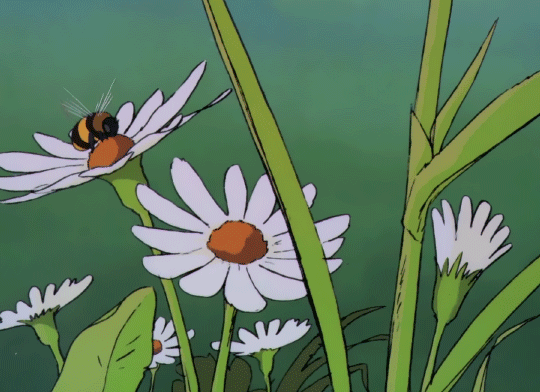Inciter Art
a writing, co-learning, and resource sharing space for an arts ecosystem with big ideas and bigger questions.
-
- Categories
- Social
- Subscribe

By
Courtney Duffy
March 8th, 2017
In final Deutsch fellowship project, Courtney Duffy spearheads 3D/DC For the second straight year, Fractured Atlas sponsored 3D/DC, a 3D printing policy event on Capitol Hill, which was produced by our friends at Public Knowledge. While 3D/DC has grown and changed over its six years, its mission remains the same: to connect makers with federal policymakers to promote policy that will encourage, rather than hinder, innovation in the industry. This was my second year at the helm of 3D/DC — you can read up on last year’s event here — and it was sadly the last major project of my two-year fellowship.

Big Ideas | Updates and Announcements | Arts | Arts Business
By
Fractured Atlas
March 8th, 2017
Five arts groups that are as creative in the rehearsal room as the board room 2017 Arts Entrepreneurship Awards Honorees: The Black List, Hire Notes, Gigsy, Southern Theater, Opera Vireo This past year saw new paradigms for defining entrepreneurship in the arts and culture sector, and we had an amazing group of nominees. We are excited to honor these five organizations whose experimentation and innovation in the field truly stood out. Whether its elevating Hollywood’s unproduced hidden gems, helping musicians get booked and get paid, solving New Orleans’s digital media needs by training the next generation of media artists, bringing the content bundling model to the performing arts, or creating an new genre of opera by embracing online television… these organizations are each in their own way using cutting edge solutions to deliver their messages.

If you're enjoying browsing, get the latest articles delivered straight to your mailbox 💌

Big Ideas | Updates and Announcements | Arts | Arts Business
By
Fractured Atlas
March 8th, 2017
2017 Arts Entrepreneurs Awards — Honorable Mentions: Inclusive Fashion + Design Collective, Jukely, Mosaic America, Sofar Sounds, and Theater of Public Policy This year, the nominations for the 2017 Arts Entrepreneurship Awards were chock full of amazing and entrepreneurial arts projects. While we forced ourselves to name just five honorees, we also wanted to tip our collective hat to these awesome creative projects that impressed us with their ingenuity, drive, and business savvy.

Updates and Announcements | Transgender | Artists and Members
By
Jason Tseng
March 6th, 2017
Last week, the Trump Administration rolled back protections for transgender students. The issue of trans people and their use of bathrooms is much bigger than mere septic concerns, this debate is fundamentally about trans people’s right to exist in public space. We, at Fractured Atlas, believe emphatically that trans people’s stories deserve to be given equal weight and access in the public commons, as well as the cultural landscape. That’s why we’re proud to support these fierce trans arts projects.

Big Ideas | Change Management | Human Resources | Renovations
By
Tim Cynova
February 27th, 2017
Fractured Atlas office following our 2016 renovation Remember that time you tried to change something and it involved other people? People will love this new thing, you said. It will make their lives so much better and easier, you said. Remember how you were blindsided by the push back, the skepticism as to your motives, and the accompanying anxiety, angst, and negativity directed towards you? Remember how you shouldn’t have been surprised because behavioral scientists have spelled out why change initiatives — large and small — can be fraught?

Tips and Tools | Arts | Artists and Members
By
Lauren Lattimore
February 27th, 2017
Each month we feature one of our fiscally sponsored projects who have been successful at using our program to advance their art/cause/career. This month’s featured project is Out by 10.

Big Ideas | Advocacy | Arts | Anti-Racism/Anti-Oppression
By
Lauren Ruffin
February 24th, 2017
Image credit: Nicolas Raymond The world has changed a lot since November, and we just wanted to take some time to remind you of who we are and where we think we’re going.

Art And Technology | Exponential Creativity | Impact Investing | Social Entrepreneurship | Venture Capital
By
Adam Huttler
February 22nd, 2017
by Adam Huttler, CEO of Fractured Atlas From March 1, 2017 through August 31, 2017, I’m going to be stepping away from all day-to-day Fractured Atlas management responsibilities. We’ve taken to calling this my “sabbatical”, but to be honest I kind of hate the term.

Arts | Arts Business | Artsentreawards | Capitol Hill | Small Business | Uncategorized
By
Fractured Atlas
February 22nd, 2017
Clockwise from top left: Sarah Carson, Sriram Emani, Erica Taylor, Jess Peterson. Event featured Adam Huttler and Courtney Duffy as panelist and moderator, respectively by Courtney Duffy, Robert W. Deutsch Arts & Technology Policy Fellow at Fractured Atlas What better day than February 14 to celebrate our love for creative entrepreneurship? Last Tuesday, Adam Huttler and I joined four arts entrepreneurs for a Capitol Hill panel hosted in conjunction with the Congressional Arts Caucus, and in collaboration with Public Knowledge. In addition to Adam, our talented panel consisted of the following entrepreneurs:

Big Ideas | Advocacy | Arts | Resistance
By
Lauren Ruffin
February 13th, 2017
Credit: Tim O’Brien, Source Last month, I met a lovely white woman from Texas at a friend’s Women’s March afterparty. Our conversation didn’t begin with politics — she’s the director of a Montessori school and avid biker, I’m an education policy hobbyist and avid biker — so things were going well. And then, out of the blue, she makes a casual comment about wishing she didn’t have to make the trip to Washington to protest.